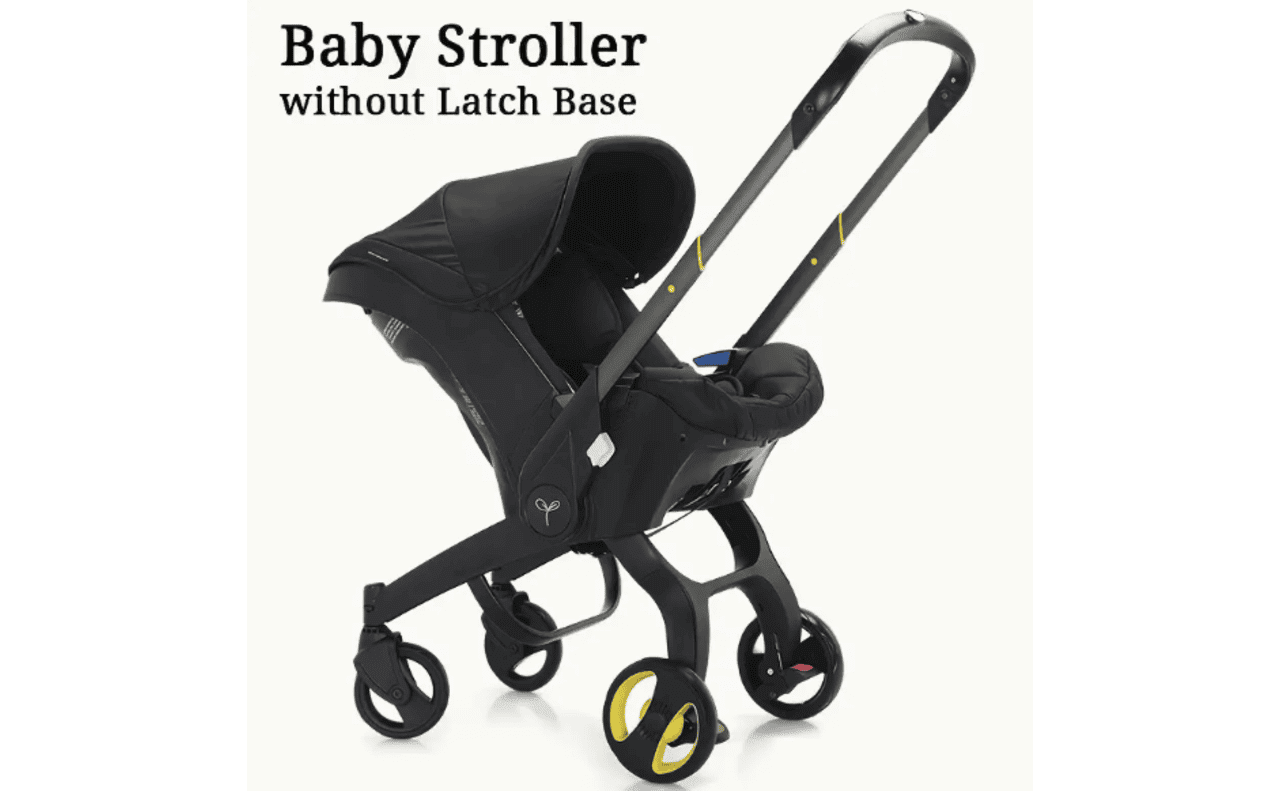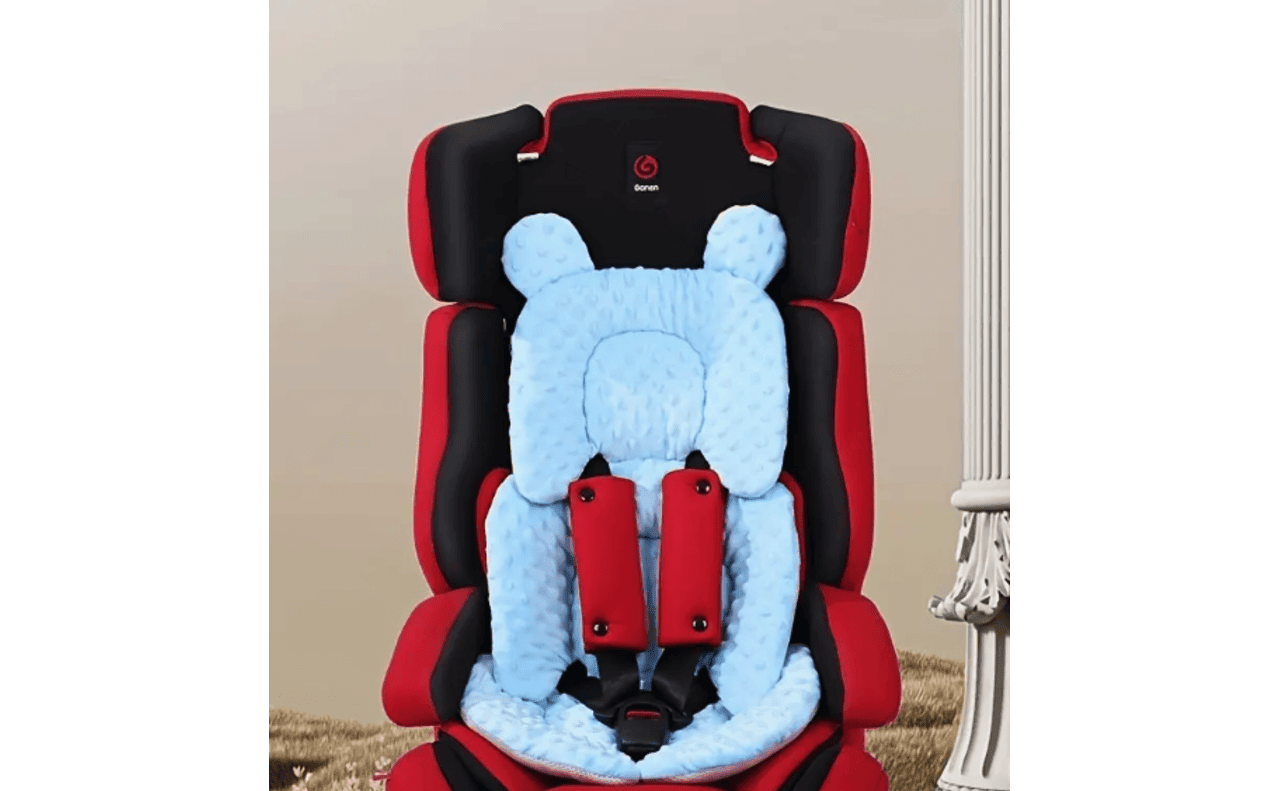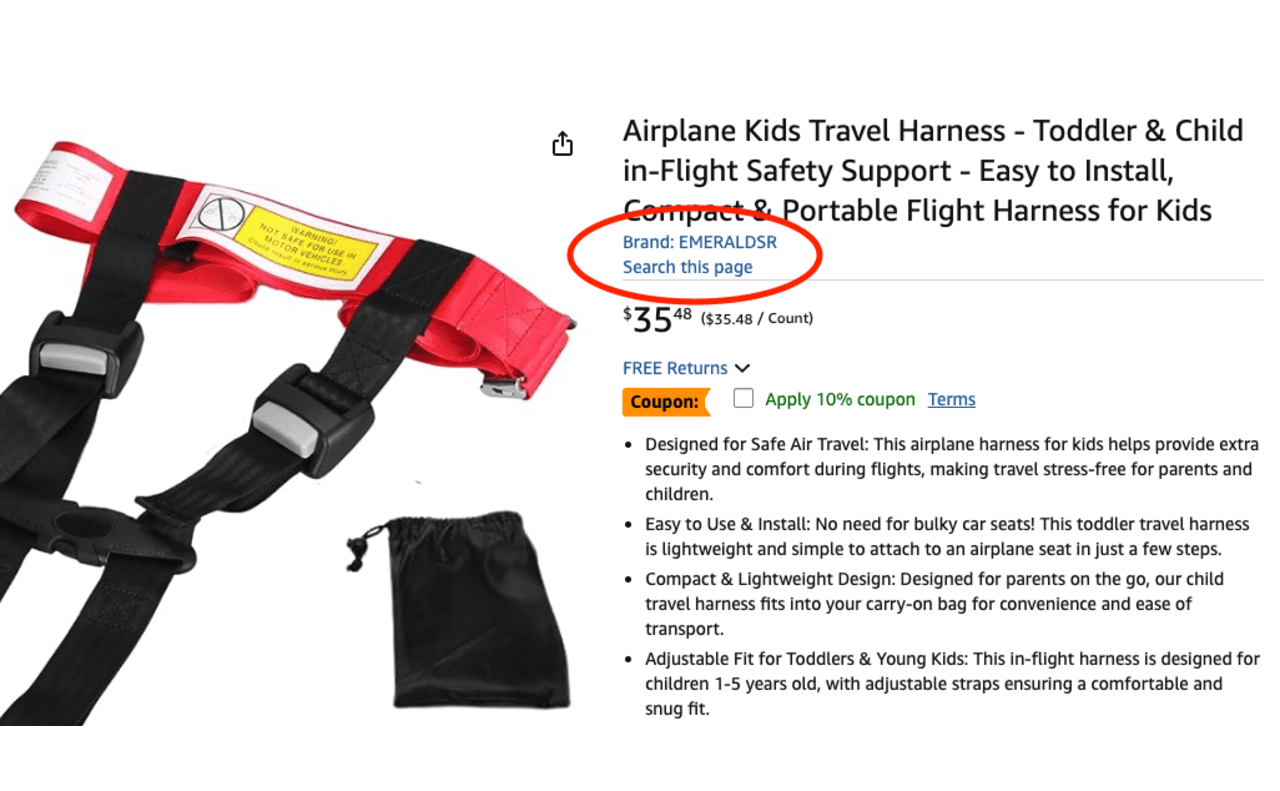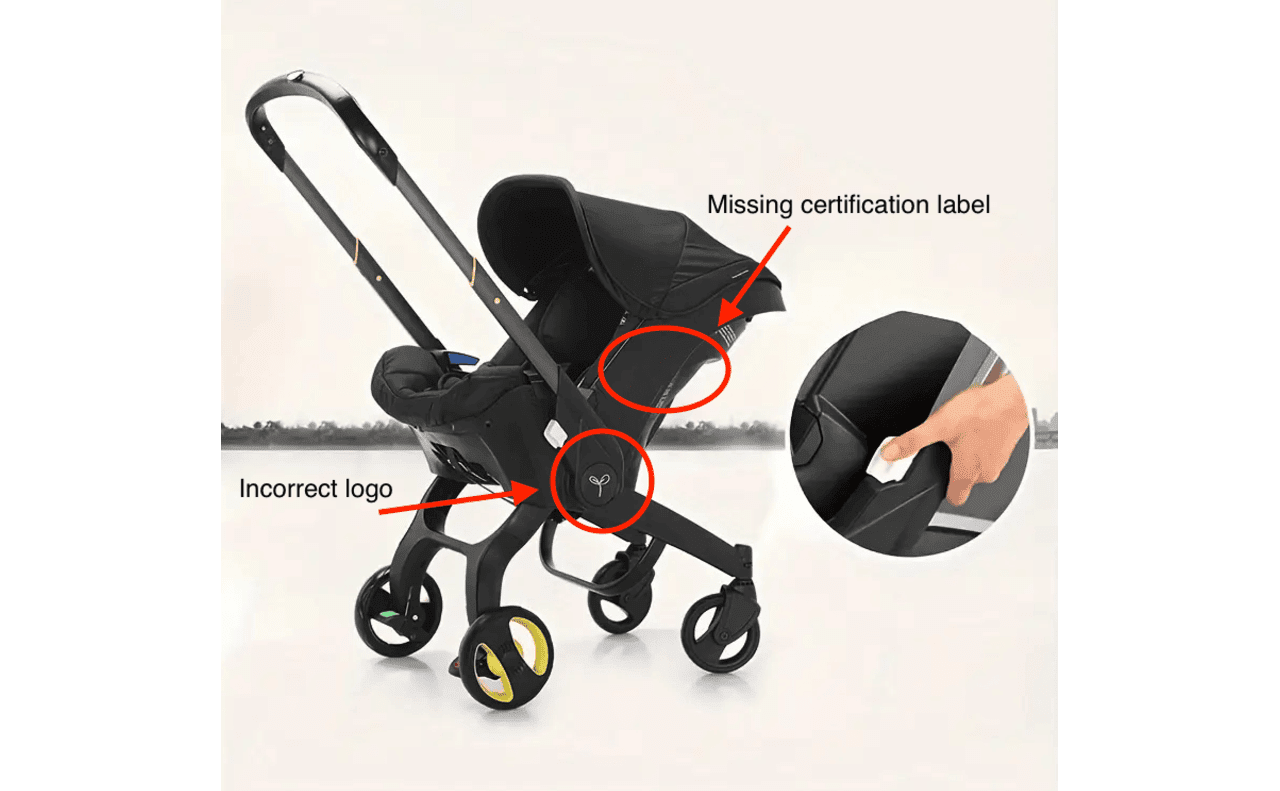
Fake Baby Products: What Every Parent Needs to Know
Why baby gear dupes aren’t worth the risk—and how to spot them.

In This Article
Registering and shopping for baby products has changed a lot over the past decade. As brick-and-mortar baby stores continue to close, most people now shop mostly online. And while this can make your life as a new or expecting parent easier, it also means you’ll sometimes need to put on your detective hat—because counterfeit baby products are on the rise.
“It’s easy for a disreputable factory or entity to create and sell a counterfeit version of a popular product,” says Lisa Trofe, Executive Director of the Juvenile Products Manufacturers Association (JPMA), the leading industry voice on quality and safety for baby and children’s products in North America.
Manufacturers are also feeling this rise in counterfeiting. “In the past several months, UPPAbaby has seen a meaningful uptick in unauthorized parties selling counterfeit goods, specifically on marketplaces,” an UPPAbaby company representative told us.
Fakes are unregulated, untested and unsafe. JPMA and other regulatory bodies work to educate consumers around counterfeits and fight back whenever possible, but the reality is there are simply too many flooding the market to keep up with—so it’s smart to educate yourself so you know how to spot them.
Counterfeit vs. Non-Compliant Baby Products
Whether you’re creating your baby registry or researching gear, there are two categories of problematic baby products you should be aware of: counterfeit products and non-compliant products.
Counterfeit products, also called dupes, fakes or knock-offs, are products that illegally imitate legitimate brands.
A counterfeiter aims to deceive customers into thinking they’re buying a name-brand item when, in reality, they’re purchasing a fake. Counterfeit items are untested, unregulated and dangerous. The Doona car seat and stroller hybrid is an example of a commonly knocked-off baby product and a fake car seat that’s extremely unsafe.

A counterfeit Doona. The product name is incorrect and the image at the base of the handle does not match the image found on a real Doona.
Non-compliant products are real products from real companies, but they fail to meet safety standards and regulations.
In the US, the Consumer Product Safety Commission (CPSC), an independent federal regulatory agency, works to reduce the risk of injury or death from consumer products by developing a list of voluntary standards for certain products, including many baby products. A non-compliant product does not adhere to these standards and is unsafe.
“If a consumer believes a product may be counterfeit [or non-compliant], they should also assume it has not been manufactured to be in compliance with applicable safety standards,” explains Nychelle Fleming, a CPSC communications specialist.
Non-compliant products also encompass non-OEM products: “Not the Original Equipment Manufacturer” products, also called aftermarket products, that claim to work with a certain brand but are actually made by a third-party manufacturer. “These are often inferior in quality and may not undergo rigorous safety testing,” says UPPAbaby. “This not only compromises performance but also exposes families to potential safety risks.”
Examples of non-compliant baby products might include a high chair without the required safety straps, a bassinet that doesn’t include the proper warning labels or a non-OEM car seat accessory like a padded seat insert or a support pillow.

The blue insert is an example of an aftermarket (and unsafe) car seat accessory.
Are Fake Baby Products Safe?
While it may be tempting to save some money or score a good deal, counterfeit and non-compliant baby products are dangerous and should be avoided.
“Counterfeits and knock-offs cannot be deemed safe,” says Trofe. “These products typically come from disreputable factories that exploit a brand's popularity and compromise on quality materials and safety testing to cut costs,” she explains. “On the other hand, reputable manufacturers follow rigorous processes to select quality materials, stronger components, and verified factories, often going above and beyond compliance requirements to exceed safety standards.”
And while it may feel like some fake baby products are “less” dangerous than others—a counterfeit car seat versus a knock-off swaddle, for example—that’s not the case. All fake or non-compliant baby products can pose significant risks and aren’t safe to use with your baby. An untested car seat won’t protect your child in the event of a crash; a dupe swaddle may have a loose zipper and be a choking hazard; a non-compliant stroller may not be stable enough to withstand the bumps and bounces of a long walk.
“The baby and children’s products industry exists to provide solutions to caregivers for the care and safety of their babies and young children, and is highly regulated for good reason,” says Trofe. Whether it’s a teether or a stroller, strict laws around design and performance standards are in place for a purpose. “Every baby product has hardware for structural integrity, mechanisms for movement or sound, or buckles or straps for restraint, and reputable manufacturers prioritize safety and durability throughout their design and manufacturing processes,” she emphasizes.
How to Spot Fake Baby Products
Being aware of counterfeit and non-compliant baby products is the first step in keeping your baby safe. Here’s what to keep an eye out for as you add items to your baby registry or shop for new gear.
🚩Shop from a reputable retailer
As brick-and-mortar stores become harder to come by, you’ll likely be shopping online for the bulk of your baby gear. It’s okay to shop around for the best price—but always buy your gear from a major, trusted retailer.
“If shopping online, always check that the product appears to be coming from a reputable brand or manufacturer,” advises Trofe. “We caution consumers to verify product authenticity by buying directly from authorized retailers or our official website,” echoes the UPPAbaby representative we consulted.
“Be extra vigilant when buying from an online seller,” adds Fleming. This includes third-party sellers (independent sellers who sell a variety of products). Some retailers, like Nordstrom and the Babylist Shop, only sell products directly from manufacturers. Others like Walmart and Amazon allow third-party sellers. Be very careful of these, as many are not trusted retailers.
If you’re shopping for a car seat, never buy one from sites like Temu, AliExpress or Wish.com or from the TikTok Shop. Many of these seats come directly from China and don’t conform to US federal standards.

This CARES harness, an airplane restraint system, is counterfeit. It’s being sold by a third-party seller. The real manufacturer warns that the brand’s official website is “the ONLY website where you can purchase brand new, certified Child Aviation Restraint System (CARES) direct from the designer and manufacturer, AmSafe. Beware of counterfeits on eBay and Amazon!"
🕵️ Pay attention to price
“If a product’s price is too good to be true, it may be counterfeit. Don’t buy it,” says Fleming. If you’re trying to save money, it’s safer to wait for a sale than to risk a fake or non-compliant product.
👀 Look for labels and certifications
Labels, certifications and other product designations are there for a reason: look for them and scrutinize them carefully.
“Look for product descriptions with information that can be validated, such as meets CPSC safety requirements [or] JPMA Certified,” says Trofe. A JPMA Certification means that a product has been independently tested to meet rigorous safety standards, including all federal and state regulations and voluntary ASTM standards, which are global standards meant to improve public health and safety and consumer confidence.
Check for misspellings or grammatical errors on labels or product copy—both can be signs of a counterfeit or non-compliant product.

A fake Doona listing. The seat is missing a certification label and has an incorrect brand logo.
You can search the JPMA Certification Directory to view JPMA Certified products by category. You can also utilize the organization’s Baby Safety University, an online resource offering parent-friendly baby safety information, “including how to choose the right product and use it correctly throughout every stage of a child’s development,” advises Trofe. She specifically recommends the Sleep Center, which offers information on creating a safe sleep environment, and the directory of JPMA Certified products by category.
For information on safety guidelines and specific product requirements, you can also visit CPSC’s business guidance library.
How to Report a Counterfeit Baby Product
If you spot a counterfeit baby product, there are a few things you can do. First, contact the seller as soon as possible so they can remove the listing and prevent others from purchasing a knockoff.
Report the product to STOPfakes.gov
File a report with SaferProducts.gov, part of the CPSC
For car seat specifically, Report the seat to the National Highway Traffic Safety Administration by clicking on “report a safety problem” on the top right of their website
If you think you may already own a counterfeit or non-compliant baby product, stop using it immediately. Reach out to the retailer and speak to the brand’s customer service team.
Expert Sources
Babylist content uses high-quality subject matter experts to provide accurate and reliable information to our users. Sources for this story include:
Lisa Trofe, Executive Director of the Juvenile Products Manufacturers Association, the leading industry voice on quality and safety for baby and children’s products in North America
Nychelle Fleming, a communications specialist at the Consumer Product Safety Commission
